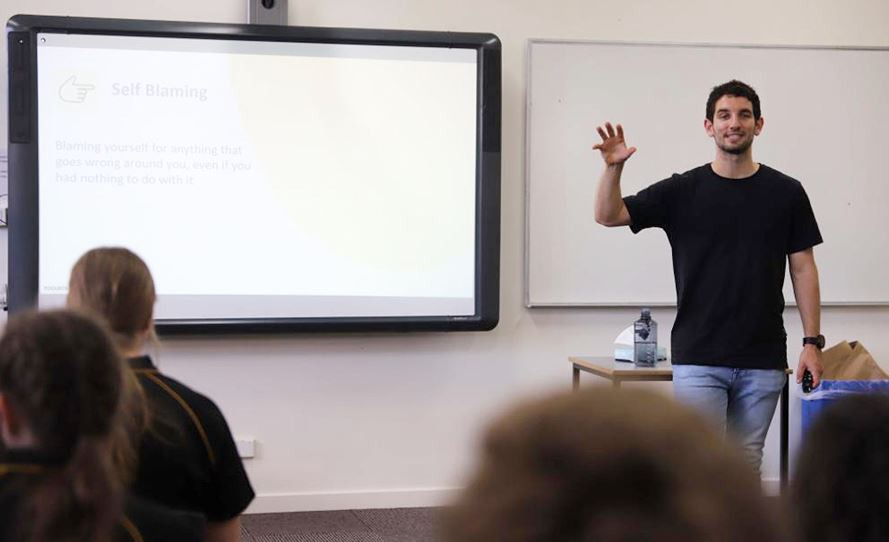
A few years ago, psychologist David Berlinski and Ben Scholl were discussing how to improve the mental health and wellbeing of young people when a curious thought crossed their minds: Why do we wait for someone to go see a psychologist, to only then teach them tools to deal with life’s challenges?
Berlinski and Scholl thus launched Toolbox Education, a company that takes psychology’s best tools and makes them relatable for today’s students.
Toolbox Education runs interactive workshops based on Cognitive Behavioural Therapy (CBT), Dialectical Behaviour Therapy (DBT), and Acceptance & Commitment Therapy (ACT), putting these important tools in the hands of students to deal with life’s challenges.
In just nine months, Toolbox has already grown to working with 40 schools across Victoria and has big plans to expand across Australia. Some of Melbourne’s top schools have already adopted the program with their Year 5-10 students as a preventative measure.
Below, The Educator speaks with Berlinski and Scholl to find out more.
TE: Can you tell us a bit about yourselves and why you launched Toolbox Education?
As a psychologist, David would teach all these great tools to people in therapy to deal with difficult situations. As Australia’s youth mental health crisis grew, and the wait time to see a psychologist was often 6-12 months, it didn’t make sense to us that people had to wait to see a psychologist to learn all these helpful tools. We wanted to provide a proactive solution and relieve the pressure on wellbeing departments, so we designed workshops for Year 5-10 students based on evidence-based therapeutic practices such as CBT, DBT and ACT to provide tools to students to deal with uncomfortable emotions and thoughts.
TE: I understand you’re currently working with about 40 schools in Victoria. What do your workshops look like in practice?
Our workshops are designed to get students using psychology’s tools in their everyday life. We do this by connecting the tools to metaphors and analogies teenagers relate to – whether that’s TikTok, Snapchat or anything else – and then applying the tools to relatable scenarios to scaffold the learning. In Years 5-7, we teach students emotion regulation and emotion literacy skills – what emotions look and feel like and how to express them healthily. In middle school, we focus on cognition – where anxious thoughts come from, what we can do when they pop up and how to manage the stories our minds are telling us.
TE: Can you share some feedback you’ve received from students and principals with regards to the impact the workshops have been having?
One of our favourite stories came from a Head of Wellbeing in Bundoora who shared with us that a week after running our Thinking Traps workshop for her Year 8s, which uses a CBT framework that teaches students how to identify and challenge unhelpful thoughts, she overheard students walking past her office saying to each other ‘do you have evidence for that thought?’ A student from Bialik College told us: ‘it was so interactive and interesting, I’ll definitely be using these skills next time I fall into overthinking’.
TE: Moving forward, what do you see as the most important implications of in-school programs like this in terms of improving the mental health and wellbeing of young people?
Currently, so much effort and expense is being poured into reactive measures when it comes to student mental health. In-school programs like Toolbox Education put the tools in the hands of students in a proactive way to manage their mental health and wellbeing. We want students to feel empowered to respond to their thoughts and emotions in a healthy way, to understand what tools they have at their disposal, instead of waiting until a significant challenge faces them and intervention is required.


